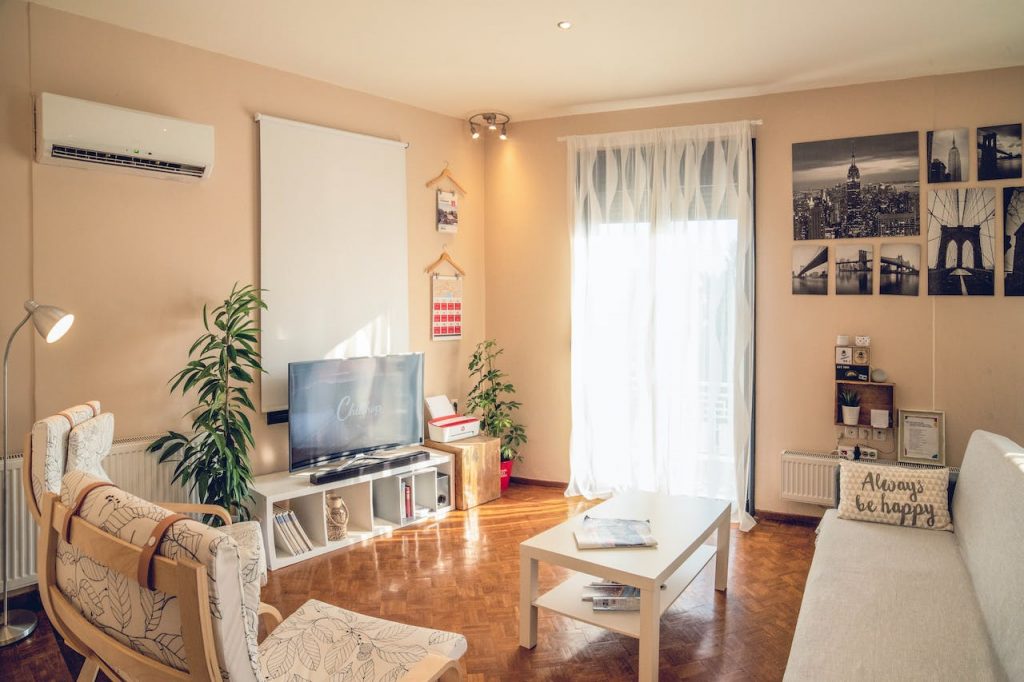With millions of travelers choosing Airbnb accommodations each year, it has become a household name in the realm of hospitality. As of today, Airbnb boasts over 4 million hosts worldwide, offering unique and personalized stays to guests across the globe. One area that often raises concerns among hosts is the Airbnb fees and how much of their earnings go to the company.
Understanding Airbnb’s fee structure is essential for hosts looking to maximize their earnings on this lucrative platform. This comprehensive guide will navigate through the intricacies of Airbnb fees, shedding light on the various charges hosts encounter and offering invaluable tips and strategies to unlock your full earning potential on the platform. Whether you’re a seasoned host or considering dipping your toes into the world of hosting, this article will equip you with the knowledge needed to make the most out of your Airbnb experience.
What is Airbnb’s Service Fee, and How is it Calculated?
Airbnb’s service fee is a crucial aspect of the platform’s revenue model, impacting both guests and hosts. This fee, paid by guests for booking accommodations, is how Airbnb generates a significant portion of its revenue.
How is Airbnb’s Service Fee Calculated?
Airbnb’s service fee is typically a percentage of the total reservation cost. This fee can range from around 14% to 20% of the booking subtotal, although it may vary depending on several factors, including the location, type of reservation, and other circumstances. Here’s a breakdown of how Airbnb calculates its service fee:
- Percentage-Based Fee: Airbnb primarily uses a percentage-based fee structure, which is applied to the total cost of the reservation. The percentage can vary, with hosts having limited control over this aspect.
- Variable Percentage: The percentage may change depending on the subtotal. For instance, it might be a higher percentage for lower-value bookings and a lower percentage for higher-value bookings. This is designed to incentivize longer stays.
- Host Fees: It’s essential to note that host fees are separate from Airbnb’s service fee. Hosts may incur additional fees for listing their properties, such as the host service fee, which is typically a percentage of the nightly rate.
- Taxes and Regulatory Fees: In some areas, Airbnb may also collect taxes or regulatory fees on behalf of local authorities. These fees are separate from Airbnb’s service fee and go directly to the relevant government entities.
The exact service fee percentage for a particular reservation is typically displayed to guests during the booking process, allowing them to see the fee before confirming their reservation. It’s important for both guests and hosts to be aware of this fee and how it can impact the overall cost of the booking.
Understanding Airbnb’s service fee is crucial for guests to budget their trips effectively and for hosts to set competitive prices while ensuring they achieve their desired earnings. Keep in mind that while this fee may seem like an additional cost, it often includes benefits like Airbnb’s customer support, secure payment processing, and the use of the platform’s extensive global network for finding and booking accommodations.
Host Fees on Airbnb
When you become an Airbnb host, it’s essential to understand the various fees associated with hosting to manage your earnings effectively and set competitive prices for your listings. In this section, we’ll explore the host fees on Airbnb and provide insights into how they work.
1. Airbnb Host Service Fee:
The most prominent fee that hosts encounter is the Airbnb host service fee. This fee covers the cost of using Airbnb’s platform to list, promote, and manage your property. It’s typically a percentage of the nightly rate you charge for your listing and can range from around 3% to 5%. The specific percentage may vary depending on factors like your location and the services Airbnb provides in your area.
2. Cleaning Fees:
Many hosts charge a separate cleaning fee to cover the cost of preparing their property for each guest’s arrival. This fee is set by the host and can vary widely based on the size of the property and the level of cleaning required. Guests see this fee when they book and should factor it into their total cost.
3. Additional Host Fees:
In some cases, hosts may incur additional fees depending on their specific circumstances. These may include:
- Local Regulations and Taxes: Depending on your location, you may be required to collect and remit local occupancy taxes or other regulatory fees. Airbnb may help facilitate this process in some areas.
- Professional Photography: While not mandatory, some hosts choose to invest in professional photography services to enhance the appeal of their listings. This is an optional cost but can be a valuable investment in attracting guests.
- Optional Airbnb Services: Airbnb offers optional services like professional cleaning and maintenance, which hosts can choose to use for a fee. These services can help streamline your hosting experience.
It’s important to carefully review Airbnb’s fee structure and pricing policies when setting up your listing to ensure that you’re pricing your accommodations competitively while also covering your costs and desired earnings. Keep in mind that transparent and reasonable pricing can lead to positive guest experiences and more bookings.
How Much are Airbnb Host Fees?
Airbnb host fees can vary based on several factors, including your location, the services you choose to use, and the specifics of your listing. Here’s a breakdown of the typical host fees you may encounter:
- Airbnb Host Service Fee: This is the primary fee that hosts pay to Airbnb for using its platform. It is generally a percentage of the nightly rate you charge for your listing and can range from about 3% to 5%. The exact percentage may vary depending on your location and the services Airbnb provides in your area.
- Cleaning Fees: Many hosts charge a separate cleaning fee to cover the cost of preparing their property for each guest’s stay. The amount of the cleaning fee is set by the host and can vary significantly based on factors such as the size of the property and the level of cleaning required.
- Optional Services: Airbnb offers optional services that hosts can choose to use for an additional fee. These services may include professional cleaning, maintenance, and photography. The cost of these services varies depending on your needs and preferences.
- Local Regulations and Taxes: Depending on your location, you may be required to collect and remit local occupancy taxes or other regulatory fees. Airbnb may assist in facilitating this process in some areas, but hosts are responsible for complying with local laws.
- Professional Photography: While not a mandatory fee, some hosts opt for professional photography services to enhance the quality of their listing photos. The cost of professional photography varies based on the photographer and the services offered in your area.
It’s important to note that host fees can change over time, and Airbnb may update its fee structure and policies. Therefore, hosts should regularly review Airbnb’s official website or contact Airbnb support for the most up-to-date information on host fees specific to their location.
How Does Airbnb Collect Service Fee Payments?
Airbnb collects its service fee payments from guests during the booking process. Here’s how the process typically works:
- Guest Booking: When a guest finds a listing they want to book on Airbnb, they enter their payment information, including credit card details, on the Airbnb platform.
- Calculation of Service Fee: Airbnb calculates its service fee as a percentage of the total reservation cost, which includes the nightly rate set by the host, any additional fees (such as cleaning fees), and any applicable taxes or regulatory fees.
- Display of Service Fee: The service fee is clearly displayed to the guest during the booking process, along with the total cost of the reservation. Guests can review this information before confirming their booking.
- Payment Authorization: Upon confirmation of the booking, Airbnb authorizes the guest’s credit card for the total amount, which includes the service fee. This authorization ensures that the guest has sufficient funds available to cover the reservation.
- Payment Processing: Airbnb securely processes the payment, deducting its service fee, and holds the reservation funds until the check-in date. Hosts receive their earnings, minus any applicable host fees and cleaning fees, after the guest checks in.
- Payment to Host: Hosts typically receive their earnings within 24 hours after the guest’s scheduled check-in time. The funds are transferred to the host’s designated payout method, such as a bank account or PayPal.
It’s important to note that Airbnb manages the entire payment process, providing a secure and streamlined transaction experience for both guests and hosts. Hosts do not need to collect payments directly from guests, as Airbnb handles all financial transactions and ensures that hosts receive their earnings promptly.
Guests can also review the payment breakdown, including the service fee, in their booking confirmation and receipt, providing transparency about the cost of their reservation.
Keep in mind that Airbnb’s service fee is a critical source of revenue for the platform, enabling it to maintain and enhance its services for both hosts and guests.
Tax Implications for Airbnb Hosts
Tax implications for Airbnb hosts can vary depending on your location and specific circumstances. It’s essential to understand the tax rules that apply to you as a host, as failing to do so can result in legal and financial issues. Here are some key considerations:
- Rental Income: In most countries, the rental income you earn from hosting on Airbnb is considered taxable income. You may need to report this income on your annual tax return. Keep accurate records of your earnings, including any payments you receive from Airbnb.
- Occupancy Taxes: Some cities and regions require hosts to collect and remit occupancy taxes on short-term rentals. Airbnb may assist in collecting and remitting these taxes on your behalf in certain areas. Check with your local tax authorities to understand your obligations regarding occupancy taxes.
- Business or Self-Employment Taxes: Depending on the extent of your hosting activities, you may be considered a small business owner or self-employed. This can have implications for your tax obligations, including self-employment taxes and the need to file quarterly tax returns.
- Deductions and Expenses: Hosts may be eligible to deduct certain expenses related to their Airbnb hosting, such as cleaning fees, maintenance costs, and home office expenses. Be sure to keep records of these expenses and consult with a tax professional to determine which deductions you can claim.
- Depreciation: If you rent out a portion of your primary residence, you may be able to claim depreciation on that portion of your property. This can reduce your taxable income, but it’s a complex area of tax law, so consult with a tax expert for guidance.
- State and Local Regulations: Some areas have specific regulations and tax rules for short-term rentals. It’s crucial to be aware of and comply with any local laws that may affect your hosting activities.
- Tax Reporting and Compliance: Airbnb may provide hosts with tax reporting documents, such as a 1099 form in the United States, which summarizes your earnings on the platform. However, it’s your responsibility to accurately report your income and comply with tax laws.
To navigate the tax implications of being an Airbnb host effectively, consider consulting with a tax professional or accountant who specializes in short-term rental income. They can provide guidance tailored to your specific situation, help you maximize deductions, and ensure that you meet all your tax obligations. Additionally, staying informed about changes in tax laws and regulations in your area is essential to maintaining compliance as a host.
What is the Occupancy Tax on Airbnb, and How is it Applied?
Occupancy tax, also known as lodging tax or transient occupancy tax, is a tax imposed by some local governments on short-term accommodations like those offered through platforms like Airbnb. The purpose of this tax is to generate revenue for local municipalities and support tourism-related activities and infrastructure. Here’s an overview of occupancy tax on Airbnb and how it is applied:
- Local Jurisdiction: Occupancy tax rates and regulations vary by location. Each city, county, or municipality may have its own rules regarding the imposition, rate, and collection of occupancy taxes. It’s essential for Airbnb hosts to be aware of the specific tax requirements in their area.
- Collection by Airbnb: In many cases, Airbnb collects occupancy taxes on behalf of hosts and remits them directly to the local tax authorities. This means that Airbnb adds the applicable tax amount to the guest’s booking cost and then handles the payment to the local government.
- Displayed to Guests: Airbnb typically displays the occupancy tax amount to guests during the booking process, providing transparency about the additional cost. Guests can see the total amount they will be charged, including the base price, cleaning fees, and occupancy taxes before confirming their reservation.
- Host Responsibilities: While Airbnb may collect and remit occupancy taxes in some areas, it’s still the host’s responsibility to comply with local tax laws. Hosts should verify whether Airbnb is handling the tax collection in their area and understand any additional reporting or registration requirements imposed by local tax authorities.
- Tax Deductions: Depending on local regulations and tax laws, hosts may be eligible to deduct occupancy taxes paid as part of their business expenses. Consult with a tax professional to determine how these deductions apply to your specific situation.
- Varying Rates: Occupancy tax rates can vary widely from one location to another. Some areas may have a fixed percentage rate, while others may calculate the tax based on a percentage of the total booking cost.
It’s crucial for Airbnb hosts to research and understand the specific occupancy tax requirements in their area and ensure compliance with local tax laws. Failing to do so can lead to legal and financial consequences. Additionally, hosts should keep accurate records of their earnings and taxes to facilitate reporting and compliance.
To get detailed and up-to-date information on occupancy tax rates and regulations in your specific location, consider reaching out to your local tax authority or consulting with a tax professional who is familiar with short-term rental income.
How to Maximize Profits as an Airbnb Host?
Maximizing profits as an Airbnb host requires a combination of effective cost management and strategies to increase your property’s appeal to guests. Here are some tips and strategies to help you achieve higher earnings:
- Competitive Pricing: Research similar listings in your area to determine competitive pricing. Adjust your rates based on seasonal demand and local events. Consider offering discounts for longer stays to attract guests looking for extended accommodations.
- Professional Photography: Invest in high-quality photos of your property. Good visuals can significantly increase bookings. Highlight the best features of your space, including amenities and unique characteristics.
- Outstanding Guest Experience: Provide exceptional hospitality and respond promptly to guest inquiries. Maintain a clean and well-organized property. Offer amenities like Wi-Fi, toiletries, and kitchen essentials to enhance the guest experience.
- Regular Maintenance: Keep your property in excellent condition by addressing maintenance issues promptly. Conduct regular inspections to ensure everything is functioning correctly.
- Flexible Check-In and Check-Out: Offer flexible check-in and check-out times when possible, as it can make your listing more attractive to guests with varying travel schedules.
- Positive Reviews: Encourage guests to leave positive reviews after their stay. Address any guest concerns or issues promptly to maintain a good reputation.
- Marketing and Promotion: Optimize your listing title and description with relevant keywords. Use social media and online marketing to increase your property’s visibility.
- Utilize Airbnb’s Tools: Take advantage of Airbnb’s host tools and resources, such as Smart Pricing, which adjusts your rates based on demand.
- Long-Term Rentals: Consider offering your property for long-term rentals, which can provide more stable income and reduce the turnover costs associated with short-term stays.
- Minimize Costs: Track and manage your expenses, such as cleaning, maintenance, and supplies. Look for cost-effective ways to furnish and decorate your space.
- Legal and Tax Considerations: Understand the tax implications of your hosting income and ensure you comply with local regulations and reporting requirements.
- Offer Unique Experiences: Consider providing unique experiences or local insights to make your listing stand out.
- Guest Communication: Maintain clear and open communication with guests before, during, and after their stay to address any questions or concerns.
- Upsell Add-Ons: Offer optional extras like airport pickups, guided tours, or special packages for an additional fee.
- Continuous Improvement: Continuously seek ways to enhance your guest experience and property offerings.
Frequently Asked Questions
What percentage does Airbnb take?
Airbnb typically takes a service fee of about 14-20% from hosts.
Does Airbnb take the full amount?
No, Airbnb does not take the full amount; hosts receive their earnings after fees.
Why are cleaning fees so high on Airbnb?
Cleaning fees can vary based on property size and cleaning standards.
How do Airbnb hosts get paid?
Airbnb hosts get paid through secure online transactions to their designated payout method.


